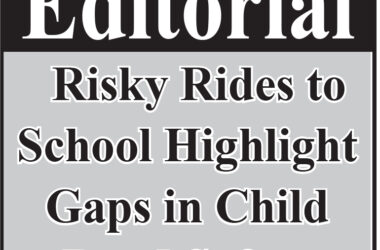Benjamin Ajuong Machiek
In my nation, I have come to realize that the “barrels”—the weapons of war—are more powerful than the “pen,” the instrument of dialogue and progress.
This observation leads me to ponder significant questions about the role of violence and peace in society. Why have barrels become more powerful than pens in my nation?
The anatomy of power
The notion of the “barrel” as a metaphor for firearms brings to light the various dimensions of power they embody. Take the AK-47, for example. This firearm’s design is a testament to precision, reliability, and lethality. The anatomical structure of an AK-47 enables it to render its impact swiftly and effectively, serving as a tool of oppression but also sometimes viewed as a means of protection in a volatile environment. Its presence often instills fear, channeling its power into the hands of those wielding it. The sound of gunfire resonates louder than the echoes of written words, drowning out dialogue and reason.
The silent pen
On the other hand, the pen symbolizes knowledge, creation, and communication. It has the power to inspire, educate, and unite. When all pens are silent, as they often are in my nation, it creates an environment where fear and violence thrive unchecked. The metaphorical “ink” of our pens runs dry, leaving the populace without the means to craft narratives that could counter the dominant themes of violence and oppression. In this state of despondency, many citizens face a dilemma: to pick up a “barrel” for protection or to find their voice through writing and expression.
Yet, this choice is often dictated by silence and consequences. The reality in my nation is grim: as barrels grow louder, the pens lay forgotten. Some pens become ineffective; their tips clogged; representatives of the voice of the people are silenced. Others become lost in the chaos, or their ink simply runs out—indicating a lack of agency in shaping national discourse.
The struggle for change
However, a glimmer of hope remains. I strongly believe that there will come a time when all barrels are taken back to their rightful place. When this occurs, the pens will emerge to write new histories, to foster discussions that can lead society toward healing and progress. The power of the pen lies in its ability to document and advocate for change, providing a non-violent means to resolve conflict and address grievances.
This transitional phase requires the collective effort of the populace to rediscover their voices and empower one another through dialogue. The struggle to reclaim the narrative must be rooted in education, advocacy, and a commitment to peaceful resolution.
To my conclusion, my fellow citizens, I urge you to prepare your pens for the inevitable return of ink to our narratives. Fix the anatomical structures of our unused writing tools—repair the cracks in communication, replace the worn tips of understanding, and refill the empty wells of knowledge. In periods of turbulence and uncertainty, it is essential to remember that the pen can indeed speak louder than the barrel when it is wielded with intention and purpose.
Do not lose hope that our nation will one day experience a renaissance where the ink flows abundantly and our voices are amplified. The time will come when we can share our stories, advocate for rights, and establish a society based on mutual respect and peace.
Let us collectively work through the silence and find solace in our pens. For ultimately, it is not the sound of gunfire that will define our legacy, but the strength of our written words that will chart a new course for future generations. In this season of struggle, let us remember: pens and paper can write the narratives that barrels cannot control. The ink can speak louder, breaking the chains of silence and fostering hope in places where despair has taken root. Let us hold fast to this ideal and strive for a society where the pen remains the mightiest instrument of all.




